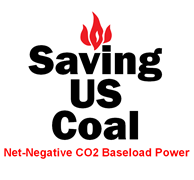
 










|
Signature Sponsor


October 18, 2024 - The U.S. Environmental Protection Agency scored a significant victory this week when the U.S. Supreme Court refused a request for an emergency order blocking the agency’s plans for curbing emissions from coal and natural gas power plants from going into effect. A number of energy states, including West Virginia, are challenging the rule that was issued last April. The Supreme Court’s decision means the EPA can move ahead with the Biden administration’s plans to eliminate carbon-based electricity production while the issue is sorted out in the lower courts. This is a win for environmentalists who are pressuring the federal government to shutter the coal and natural gas industries. “People across America are suffering through intensifying storms and other disasters because of climate change,” said Environmental Defense Fund general counsel Vickie Patton. However, this is a defeat for the affected industries, as well as anyone who is concerned about future reliability of the nation’s power grid. The new regulation requires coal plants to reduce greenhouse gas emissions by 90 percent by 2039. That can only be achieved by sequestering carbon, a process that is not commercially viable and is a regulatory nightmare. The regulations exempt existing natural gas power plants, but any new plants will have to meet emission standards that are so restrictive that they will discourage construction. West Virginia Attorney General and Republican gubernatorial candidate Patrick Morrisey is among those fighting the EPA’s new rules. “This is not the end of this case,” he said. “”We will continue to fight through the merits phase and prove this rule strips the states of important discretion while forcing plants to use technologies that don’t work in the real world.” Meanwhile, there is growing concern over the ability of electricity providers to meet the increasing demand. The operators of four of the major power grids in the United States just recently issued a dire warning in a friend of the court brief challenging the EPAs new rules. “The compliance timelines and related provisions of the rule are not workable [emphasis added] and are destined to trigger an acceleration in the pace of premature retirements of electric generating units that possess critical reliability attributes at the very time when such generation is needed to support ever-increasing electricity demand,” said the grid operators in their brief. At issue in the court case is whether the EPA has the authority to impose such sweeping rules. That is the essentially the same argument that arose when the Obama administration’s EPA issued the Clean Power Plan. Attorney General Morrisey fought the Clean Power Plan and prevailed in 2022 in the landmark West Virginia v. EPA case. Ultimately, it will take another court victory at the highest level to once again stop the EPAs overreach. |
 











|